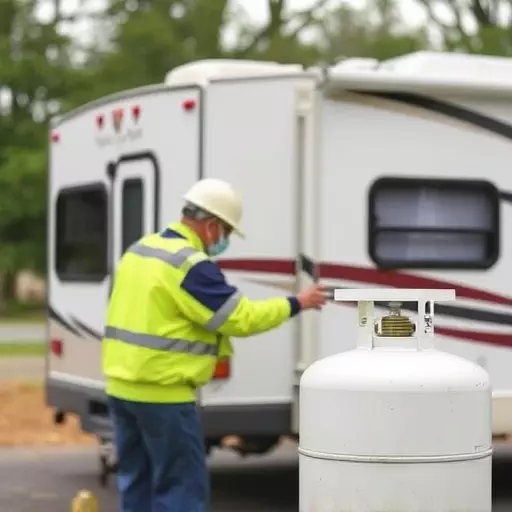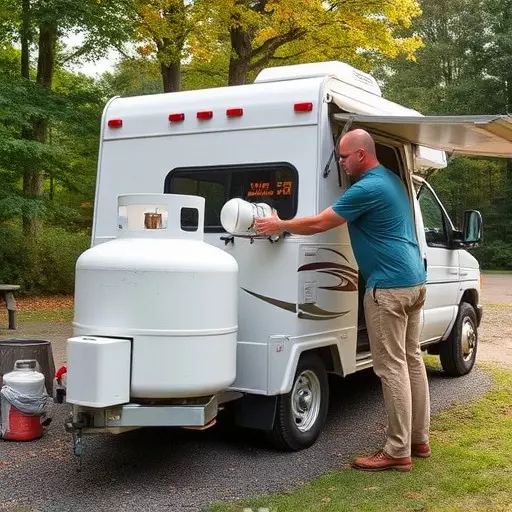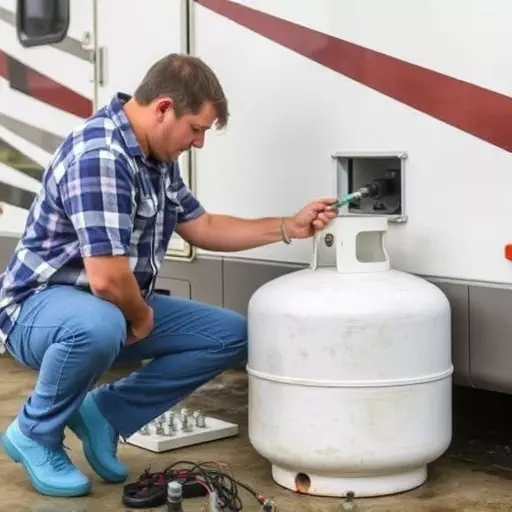Before traveling with a recreational vehicle (RV) in Camden, New Jersey, conduct thorough inspections of propane tanks for damage, corrosion, and leaks. Verify proper labeling, connections, and ventilation, regularly monitor propane levels, store spare cylinders securely, and follow expert guidelines to ensure safe propane usage, preventing accidents and enhancing travel safety.
“As you hit the open road in your recreational vehicle (RV) this season, ensuring safe propane usage is paramount. This comprehensive guide explores critical propane safety measures tailored to RV owners in Camden, New Jersey, and beyond. From understanding fundamental propane safety guidelines for RVs to mastering pre-use inspections of propane tanks, every step ensures a secure journey. Discover essential travel tips and best practices to uphold safe propane handling while on the road.”
- Understanding Propane Safety for RVs: A Comprehensive Guide
- Inspecting Propane Tanks: Pre-Use Checks You Shouldn't Skip
- Ensuring Safe Propane Usage While on the Road: Travel Tips and Best Practices
Understanding Propane Safety for RVs: A Comprehensive Guide
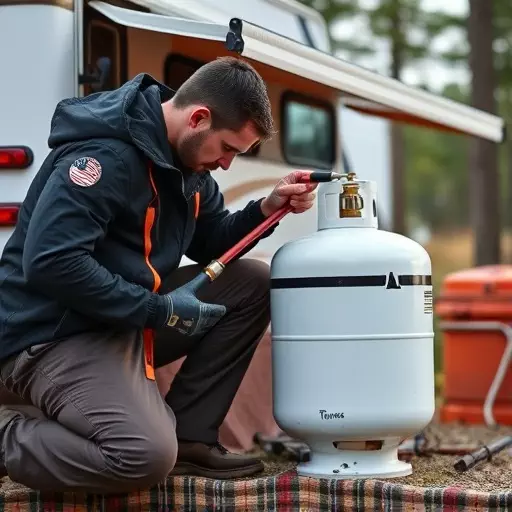
Understanding Propane Safety for RVs: A Comprehensive Guide
Safe propane usage for recreational vehicles (RVs) is a critical aspect of any road trip. Located in Camden, New Jersey, many RV owners and travelers rely on propane as a primary energy source for heating, cooking, and lighting during their journeys. However, it’s essential to follow propane safety guidelines for RVs to prevent accidents and ensure a secure travel experience. Before embarking on your adventure, thoroughly inspecting propane tanks is crucial. Check for any signs of damage, corrosion, or leaks. Ensure all connections are tight and that the tank is properly secured in its mount to avoid shifting during transit.
Additionally, understanding how much propane you have on hand is vital. Regularly monitor levels and plan your route with refilling points in mind. Many RVs come equipped with propane level indicators, making it easy to track usage. Always store spare propane cylinders securely and keep them out of reach of children. When not in use, ensure tanks are well-ventilated to prevent build-up of toxic gases. Remember that proper ventilation is key to maintaining a safe environment while using propane in your RV, especially when idle or parked for extended periods.
Inspecting Propane Tanks: Pre-Use Checks You Shouldn't Skip
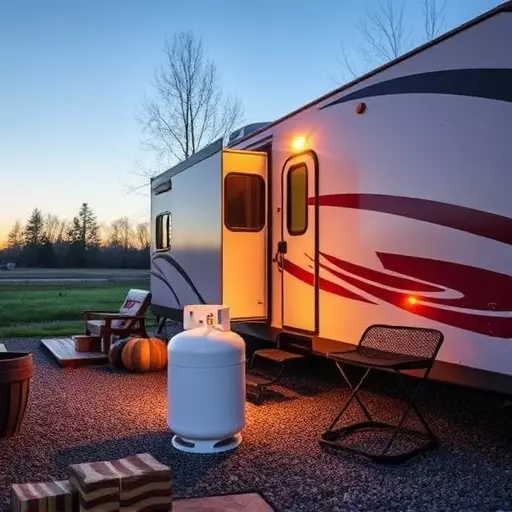
Before hitting the road in your recreational vehicle (RV), performing a thorough inspection of your propane tanks is non-negotiable for safe propane usage. This simple yet crucial step can prevent potential hazards and ensure smooth travel. Start by visually examining the tank for any signs of damage, corrosion, or leaks. Check for proper labeling and date stamps to monitor tank age and maintenance history. Always verify that valves and connections are secure and in good working condition.
Following established propane safety guidelines for RVs, such as those recommended by experts in Camden, New Jersey, is essential. This includes checking for any obstructions or debris around the tank opening and ensuring easy accessibility for future inspections. Regular pre-use checks not only guarantee the integrity of your propane systems but also contribute to a more enjoyable and secure travel experience.
Ensuring Safe Propane Usage While on the Road: Travel Tips and Best Practices
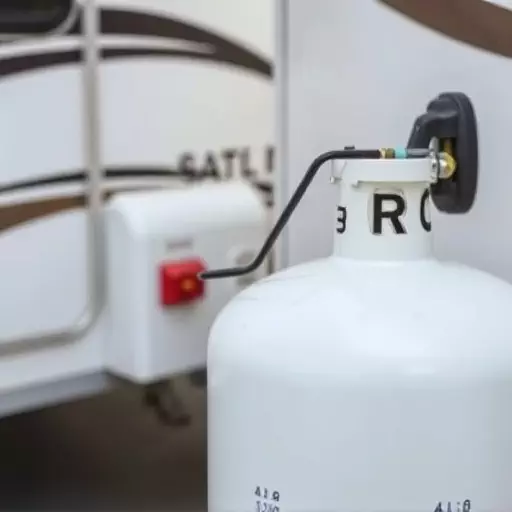
When traveling with a recreational vehicle (RV) equipped with propane, prioritizing safe propane usage is paramount to avoid accidents and ensure a secure journey. Before hitting the road, it’s crucial to thoroughly inspect propane tanks for any signs of damage or leaks. Camden, New Jersey, residents and RV enthusiasts should familiarize themselves with proper handling procedures, including regular maintenance and monitoring throughout their trips. Always store propane tanks securely, keeping them well-ventilated and out of direct sunlight to prevent overheating.
During travel, keep an eye on your propane levels regularly. Many modern RVs come with digital gauges that display tank capacity, allowing for precise tracking. Never let a low propane level catch you off guard; plan ahead by identifying nearby filling stations or consider carrying spare tanks as a safety measure. Following these simple yet effective propane safety guidelines can help ensure a peaceful and enjoyable journey while exploring the beautiful landscapes of New Jersey or beyond.
